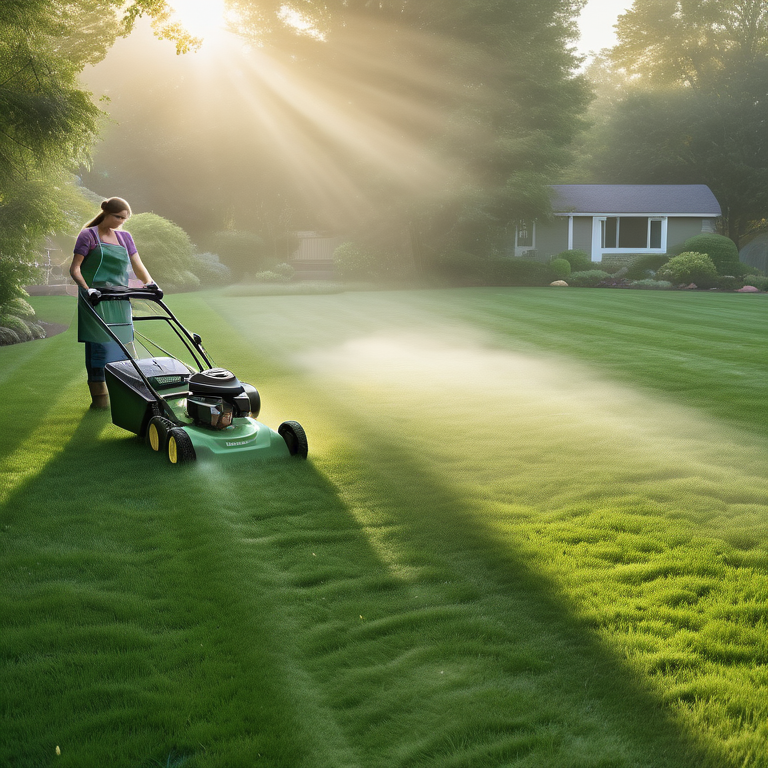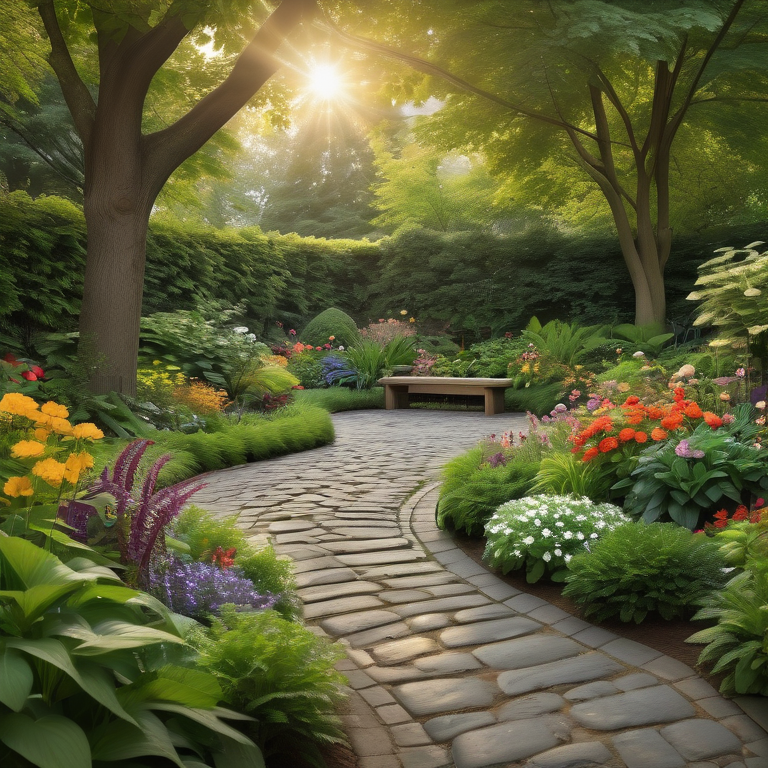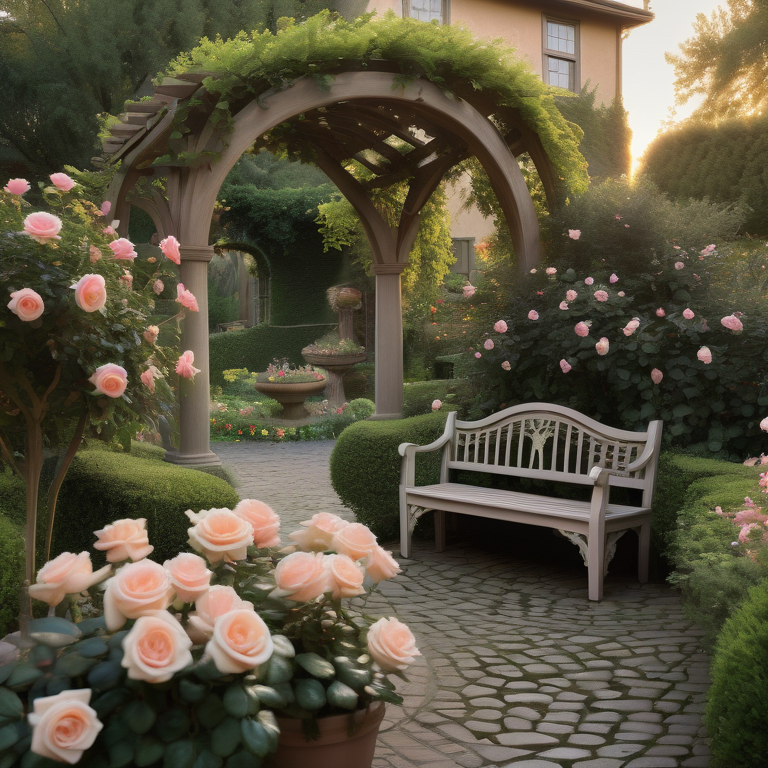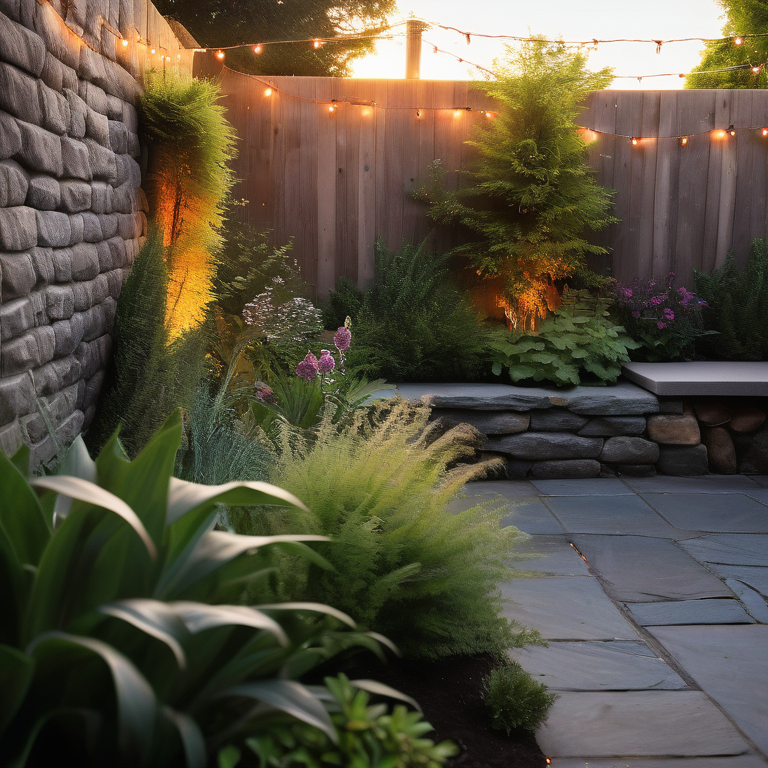Key Highlights
- Landscape design is a key aspect of becoming a successful landscaper, as it involves creating visually appealing and functional outdoor spaces.
- Understanding the importance of outdoor spaces and how they can enhance the beauty and value of residential and commercial properties is crucial for aspiring landscapers.
- Horticulture plays a significant role in becoming a landscaper, as it involves the knowledge of plant selection, care, and maintenance.
- Landscaping requires various skills and qualifications, including the ability to use power tools, understand usability, and have a basic understanding of horticulture principles.
- Getting started as a landscaper involves acquiring the necessary equipment and resources, as well as finding your first landscaping job or project.
- Steps to becoming a landscaper include gaining basic gardening and design experience, obtaining relevant qualifications, building a portfolio of your work, and applying for landscaping positions or starting freelancing.
Introduction
Becoming a landscaper is an exciting and fulfilling career choice for those who have a passion for outdoor spaces and a creative flair. Landscapers play a crucial role in transforming outdoor areas into beautiful and functional spaces that enhance the lives of their clients. Whether it’s designing a garden, installing hardscape features, or maintaining lawns and plants, landscapers have the opportunity to create visually appealing environments that can bring joy and tranquility to people’s lives.
Understanding the role of a landscaper requires a combination of technical skills, artistic vision, and practical knowledge of horticulture. Landscapers work closely with homeowners, property managers, architects, and contractors to bring their outdoor visions to life. They incorporate elements such as plant selection, hardscape features, lighting, irrigation systems, and drainage solutions to create outdoor spaces that are not only aesthetically pleasing but also functional and sustainable.
This beginner’s guide aims to provide aspiring landscapers with essential information on how to become a successful landscaper. From understanding the importance of landscaping to acquiring the necessary skills and qualifications, this guide will provide valuable insights and steps to kickstart your career in landscaping. So, let’s dive in and explore the world of landscaping!
Understanding the Role of a Landscaper
To understand the role of a landscaper, it is essential to define landscaping and its importance. Landscaping involves the design, installation, and maintenance of outdoor spaces such as gardens, lawns, parks, and other landscaped areas. Landscapers use their expertise in horticulture, plant selection, and landscape design principles to create visually appealing and functional outdoor environments.
The importance of landscaping lies in its ability to enhance the aesthetic appeal, usability, and value of residential and commercial properties. Landscapers work closely with homeowners, property managers, architects, and contractors to plan and execute landscaping projects that meet the needs and preferences of their clients. By incorporating elements such as plant selection, hardscape features, lighting, irrigation systems, and drainage solutions, landscapers create outdoor spaces that enrich the lives of their clients and communities. www.wicklowlandscaping.ie
Defining Landscaping and Its Importance
Landscaping is the art and science of designing and creating outdoor spaces that are aesthetically pleasing and functional. It involves the careful selection of plants, trees, shrubs, and flowers, as well as the design and installation of hardscape features such as pathways, patios, decks, and water features. Landscapers use their knowledge of landscape design principles, horticulture, and environmental factors to create outdoor environments that enhance the beauty and usability of residential and commercial properties.
The importance of landscaping cannot be overstated. Well-designed and maintained outdoor spaces not only enhance the aesthetic appeal of a property but also provide numerous benefits. Outdoor spaces such as gardens, lawns, and parks offer a place for relaxation, recreation, and socializing. They can also contribute to improving air and water quality, reducing noise pollution, and providing habitat for wildlife. Additionally, a well-landscaped property can increase property value and curb appeal, making it more attractive to potential buyers or tenants. www.wicklowlandscaping.ie
Key Roles and Responsibilities of a Landscaper
As a landscaper, you will have a range of roles and responsibilities aimed at creating and maintaining aesthetically pleasing outdoor environments. One of your key responsibilities will be landscape design. This involves collaborating with clients to understand their preferences, needs, and budget constraints and developing landscape design plans that incorporate elements such as plant selection, hardscape features, lighting, irrigation systems, and drainage solutions.
You will also be involved in the installation and construction of landscaping projects. This includes overseeing the implementation of landscape design plans, coordinating the installation of plants, trees, shrubs, flowers, turfgrass, and other landscaping elements. You may also be responsible for constructing hardscape features such as pathways, patios, decks, retaining walls, fences, and water features, using a variety of materials such as stone, wood, brick, and concrete.
Another important aspect of your role as a landscaper will be planting and maintenance. This includes tasks such as soil preparation, mulching, watering, fertilizing, pruning, and weed control. You will be responsible for planting, transplanting, and maintaining a variety of plants, trees, and flowers to enhance the beauty and health of the landscape.
Additionally, you will be involved in lawn care, which includes tasks such as mowing, edging, aerating, overseeding, and dethatching lawns to promote healthy growth and appearance. You will also assess soil conditions, adjust irrigation schedules, and apply fertilizers and herbicides as needed to keep lawns lush, green, and weed-free.
Customer service is another important aspect of your role as a landscaper. You will interact with clients, property owners, and other stakeholders to provide excellent customer service throughout the landscaping process. This includes communicating effectively, addressing client concerns and preferences, providing recommendations for landscape improvements, and ensuring client satisfaction with the final results. You may also educate clients about proper landscape maintenance practices and offer ongoing support and assistance to maintain the landscape’s beauty and functionality over time. www.wicklowlandscaping.ie
Key Takeaways About Becoming a Landscaper
Becoming a landscaper requires a combination of technical skills, artistic vision, and practical knowledge of plant care and landscape management techniques. It is a profession that offers the opportunity to create visually appealing and functional outdoor spaces that enrich the lives of clients and communities.
Key takeaways about becoming a landscaper include understanding the importance of landscaping and its role in enhancing the beauty and value of residential and commercial properties. Additionally, acquiring the necessary skills and qualifications such as horticulture knowledge, power tool proficiency, and usability understanding is crucial for success in this field. www.wicklowlandscaping.ie
What is Known About the Landscaping Profession
There are certain facts known about the landscaping profession that can provide valuable insights to aspiring landscapers. Here are a few key points:
- Landscape architects and landscape designers are professionals who play important roles in the landscaping profession. Landscape architects specialize in planning and designing large-scale outdoor projects such as parks, public spaces, and commercial developments. Landscape designers, on the other hand, focus on designing outdoor spaces by selecting plants, hardscapes, and other features.
- Continuous learning and skill development are important in the landscaping profession. As new techniques and technologies emerge, it is essential for landscapers to stay up to date with the latest trends and practices to provide the best services to their clients.
- Marketing and networking are crucial for growing a landscaping business. Building relationships with clients, contractors, and other professionals in the industry can lead to more job opportunities and business growth. www.wicklowlandscaping.ie
Addressing Common Unknowns in Landscaping
In the world of landscaping, there are common unknowns that aspiring landscapers may have. Addressing these unknowns can help clarify misconceptions and provide a better understanding of the profession.
One common unknown is the importance of drainage in landscaping. Proper drainage is essential to prevent water buildup, which can lead to issues such as soil erosion, waterlogging, and damage to plants and structures. Landscapers must have a good understanding of drainage solutions to ensure the long-term health and durability of outdoor spaces.
Another common unknown is the use of power tools in landscaping. Power tools such as trimmers, chainsaws, and leaf blowers are essential for efficient and effective landscaping tasks. Landscapers must be trained in the proper use and maintenance of these tools to ensure safety and productivity.
Homeowners often have questions and concerns about landscaping projects. As a landscaper, it is important to be able to address these concerns and provide knowledgeable answers. Understanding the needs and preferences of homeowners and effectively communicating with them is crucial for client satisfaction and success in the landscaping profession.
Essential Skills and Qualifications for Landscapers
To become a successful landscaper, certain skills and qualifications are essential. Landscapers need a deep understanding of horticulture, including plant biology, soil health, and plant care techniques. They should be familiar with power tools and be able to use them safely and effectively. Usability knowledge is also important, as landscapers need to create outdoor spaces that are functional and meet the needs of their clients. In addition to these technical skills, good communication, creativity, and attention to detail are also valuable traits for landscapers to possess. www.wicklowlandscaping.ie
Basic Skills Every Aspiring Landscaper Should Have
Aspiring landscapers should focus on developing a strong foundation in key skills. A solid understanding of horticulture is crucial, including knowledge of plant biology, soil composition, and maintenance techniques. This knowledge allows landscapers to select the right plants for specific environments and ensure their healthy growth.
Proficiency with power tools is another essential skill for landscapers. From lawnmowers and trimmers to chainsaws and hedge trimmers, power tools are integral to many landscaping tasks. Landscapers must be comfortable and skilled in using these tools safely and effectively.
Usability is an important aspect of landscape design. Landscapers should have the ability to create outdoor spaces that are functional and meet the needs of their clients. This includes considering factors such as accessibility, ease of maintenance, and desired features like seating areas, water features, or outdoor kitchens.
By honing these basic skills, aspiring landscapers can lay a strong foundation for a successful career in the field. www.wicklowlandscaping.ie
Educational Paths to a Landscaping Career
There are various educational paths to pursue a career in landscaping. Acquiring relevant qualifications can expand your knowledge and enhance your skills in the field. Here are some common educational pathways for aspiring landscapers:
- Trade School or Vocational Programs: Many trade schools and vocational programs offer courses in landscaping and horticulture. These programs provide hands-on training and often cover topics such as plant identification, landscape design, irrigation systems, and maintenance techniques.
- Community College or Technical Institute: Community colleges and technical institutes offer associate degree programs in landscape design or horticulture. These programs typically provide a more in-depth education, covering subjects like landscape construction, plant propagation, and sustainable landscaping practices.
- University Degree: Pursuing a bachelor’s degree in landscape architecture or horticulture from a university can open up opportunities for career advancement and specialization. These programs offer comprehensive coursework in landscape design, plant science, environmental planning, and construction methods.
Here is a text table summarizing the educational paths to a landscaping career:
|
Pathway |
Description |
|
Trade School/Vocational Programs |
Hands-on training in landscaping and horticulture |
|
Community College/Technical Institute |
Associate degree programs in landscape design or horticulture |
|
University Degree |
Bachelor’s degree in landscape architecture or horticulture |
Getting Started as a Landscaper
If you’re ready to embark on a career as a landscaper, here are some steps to help you get started. First, ensure that you have the necessary equipment and resources, such as power tools, gardening supplies, and access to water features. Next, start building your professional network by reaching out to local landscapers, garden centers, and nurseries. They may have job opportunities or offer valuable advice and mentorship. Finally, consider taking on small landscaping projects for friends, family, or neighbors to gain experience and build your portfolio. www.wicklowlandscaping.ie
Necessary Equipment and Resources
As a landscaper, having the right equipment and resources is essential for completing projects efficiently and effectively. Here are some items that should be part of a landscaper’s toolkit:
- Power Tools: Landscapers rely on various power tools for tasks such as mowing, trimming, pruning, and cutting. Examples include lawnmowers, hedge trimmers, chainsaws, and handheld pruners. Investing in high-quality, reliable power tools can significantly improve productivity.
- Water Features: Water features like fountains, ponds, or streams can add a unique touch to outdoor spaces. Landscapers should be familiar with different types of water features and have the expertise to design, install, and maintain them.
- Patio Materials: Patios provide functional and attractive outdoor living spaces. Landscapers should have knowledge of various patio materials, such as concrete, pavers, or natural stone, and be able to install them correctly.
By having the necessary equipment and resources, landscapers can offer a wide range of services and create exceptional outdoor environments for their clients.
Finding Your First Landscaping Job or Project
Finding your first landscaping job or project can be an exciting step in your career. Here are some strategies to help you get started:
- Networking: Reach out to local landscapers, garden centers, and nurseries to inquire about job opportunities or apprenticeships. Building relationships within the industry can open doors and provide valuable guidance.
- Online Platforms: Utilize online platforms and job boards specifically tailored to the landscaping industry. These platforms can connect you with potential clients or employers seeking landscaping services.
- Personal Connections: Leverage your personal network by informing friends, family, and acquaintances about your landscaping skills. Word-of-mouth referrals can lead to your first job or project.
- Showcasing Your Work: Create a portfolio showcasing your previous landscaping projects or any relevant design work. This will give potential clients or employers a visual representation of your skills and abilities.
By actively seeking out opportunities and showcasing your expertise, you can find your first landscaping job or project and kickstart your career in the field. www.wicklowlandscaping.ie
Step-by-Step Guide to Becoming a Landscaper
Becoming a landscaper requires a combination of experience, education, and building a strong professional network. Here is a step-by-step guide to help you navigate your journey:
- Step 1: Gain Basic Gardening and Design Experience – Start by gaining hands-on experience in basic gardening and landscape design. Work on personal projects or volunteer at local gardens or parks to develop your skills.
- Step 2: Obtain Relevant Qualifications – Consider pursuing formal education in landscaping or horticulture. Trade schools, community colleges, and universities offer programs that provide in-depth knowledge and training.
- Step 3: Build a Portfolio of Your Work – As you gain experience, create a portfolio showcasing your best work. Include before and after photos, design plans, and client testimonials to demonstrate your capabilities.
- Step 4: Apply for Landscaping Positions or Start Freelancing – Begin applying for landscaping positions at companies or offer your services as a freelancer. Utilize your network and online platforms to find job opportunities.
By following these steps, you can embark on a successful career as a landscaper. www.wicklowlandscaping.ie
Step 1: Gain Basic Gardening and Design Experience
The first step in becoming a landscaper is gaining basic gardening and design experience. This involves developing a strong foundation in both practical gardening skills and design principles. Consider the following actions to gain this experience:
- Start a Home Garden: Begin by creating and maintaining your own garden space. This hands-on experience will allow you to learn about different plant varieties, soil health, and basic gardening techniques.
- Volunteer at Gardens or Parks: Offer your assistance at local gardens or parks. This will provide an opportunity to learn from experienced gardeners and gain practical knowledge in plant care and maintenance.
- Study Garden Design: Explore books, online resources, or courses that focus on garden design principles. Understand concepts such as color theory, spatial planning, and functionality in outdoor spaces.
By gaining basic gardening and design experience, you will develop a strong foundation that will serve as a solid base for your future career as a landscaper. www.wicklowlandscaping.ie
Step 2: Obtain Relevant Qualifications
To enhance your knowledge and boost your credentials as a landscaper, obtaining relevant qualifications is crucial. Consider the following options:
- Formal Education: Look for trade schools, community colleges, or universities that offer programs in landscaping, horticulture, or landscape architecture. These programs provide comprehensive knowledge and practical training.
- Professional Certifications: Explore certifications offered by industry organizations or associations. These certifications validate your expertise and can enhance your credibility as a landscaper.
- Apprenticeships or Internships: Seek opportunities to work alongside experienced landscapers through apprenticeships or internships. This hands-on experience will allow you to learn from professionals in the field and gain practical skills.
Keep in mind that the specific qualifications required may vary depending on your location and the type of landscaping work you want to pursue. Research the options available in your area and choose the path that aligns with your career goals.
Step 3: Build a Portfolio of Your Work
Building a portfolio is essential for showcasing your skills and attracting potential clients or employers. Here are some tips for creating an impressive portfolio as a landscaper:
- Document Your Work: Take high-quality photos of your completed landscaping projects, including before and after shots. Include details such as plant selections, design plans, and any unique features you incorporated.
- Include Client Testimonials: Ask satisfied clients for testimonials or reviews. These testimonials add credibility to your work and provide insights into your professionalism and client satisfaction.
- Demonstrate Design Skills: Include sketches or renderings of your design concepts. This helps potential clients visualize your ideas and understand your approach to landscape design.
- Show Range and Diversity: Showcase a variety of projects that highlight your versatility as a landscaper. Include examples of different styles, themes, and sizes to demonstrate your adaptability to various client preferences.
A well-curated portfolio will effectively showcase your expertise and increase your chances of securing landscaping projects or job opportunities. www.wicklowlandscaping.ie
Step 4: Apply for Landscaping Positions or Start Freelancing
Once you have gained experience, obtained relevant qualifications, and built a portfolio, it’s time to put your skills to work. Consider the following options for finding landscaping positions or starting your own freelance business:
- Job Applications: Look for landscaping companies that are hiring and submit your applications along with your portfolio. Emphasize your experience, qualifications, and unique skills that set you apart from other applicants.
- Networking: Attend industry events, join professional associations, and connect with other professionals in the landscaping field. Networking can lead to job opportunities and valuable connections that can support your career growth.
- Freelancing: Consider offering your landscaping services on a freelance basis. Build a client base by promoting your expertise through word-of-mouth, online platforms, and social media.
By actively pursuing job opportunities or marketing your freelance services, you can establish yourself as a reputable landscaper and start building a successful career in the field. www.wicklowlandscaping.ie
Advancing Your Career in Landscaping
As a landscaper, there are several ways to advance your career and continue growing in the field. Here are some strategies to consider:
- Joining Professional Landscaping Associations: Membership in industry associations, such as the Association of Professional Landscape Designers or the National Association of Landscape Professionals, can provide networking opportunities and access to resources for continuous learning.
- Continuous Learning and Skill Development: Stay updated with the latest trends, techniques, and technologies in landscaping through workshops, seminars, and online courses. This ongoing learning will enhance your expertise and keep your skills relevant in a rapidly evolving industry.
By actively seeking opportunities for professional development and networking, you can advance your career and stay at the forefront of the landscaping field.
Joining Professional Landscaping Associations
Joining professional landscaping associations offers numerous benefits for your career growth and development as a landscaper. Here are some advantages of becoming a member:
- Networking Opportunities: Associations provide a platform for connecting with other professionals in the landscaping industry. Networking can lead to collaboration, mentorship, and potential job opportunities.
- Professional Development: Associations often organize workshops, conferences, and seminars that focus on industry trends, best practices, and emerging technologies. These events offer valuable knowledge and insights to enhance your skills and stay competitive in the field.
- Resources and Support: Associations provide access to resources such as industry publications, research materials, and online forums. These resources can help you stay informed about the latest advancements and seek guidance from experienced professionals.
Some notable landscaping associations include the Association of Professional Landscape Designers (APLD), the National Association of Landscape Professionals (NALP), and the American Society of Landscape Architects (ASLA).
Continuous Learning and Skill Development
Continuous learning and skill development are essential for staying relevant and successful as a landscaper. Here are some ways to prioritize ongoing education:
- Industry Workshops and Seminars: Attend workshops and seminars conducted by industry experts to learn about new techniques, trends, and best practices in landscaping. These events offer opportunities to enhance your skills and stay updated with the latest advancements.
- Online Courses and Certifications: Take advantage of online platforms that offer courses and certifications specifically tailored to landscaping. These programs provide flexibility and allow you to learn at your own pace.
- Specialize in Horticulture: Develop expertise in horticulture by deepening your knowledge of plant biology, soil health, and plant care techniques. This specialization can set you apart as a skilled landscaper in the industry.
By continuously expanding your knowledge, honing your skills, and staying up-to-date with industry developments, you can deliver exceptional landscaping services and advance your career. www.wicklowlandscaping.ie
Conclusion
Embarking on a journey to become a skilled landscaper entails understanding the profession, acquiring essential skills, and building a robust portfolio. By gaining experience, obtaining qualifications, and showcasing your work, you pave the way for a successful landscaping career. Continuous learning, joining professional associations, and staying updated with industry trends are key to advancing in this field. Whether you aim to work for established firms or launch your freelance business, dedication and passion will set you apart. So, equip yourself with the necessary tools, seize opportunities, and nurture your creativity to flourish in the dynamic world of landscaping. www.wicklowlandscaping.ie
Frequently Asked Questions
How Long Does It Take to Become a Professional Landscaper?
The time it takes to become a professional landscaper can vary depending on factors such as the level of education pursued, work experience gained, and individual career goals. Some landscapers may start working after completing a trade school program, while others may pursue a bachelor’s degree in landscape architecture. It can take anywhere from a few months to several years to establish a career as a professional landscaper.
Do I Need a License to Practice Landscaping?
The requirement for a license to practice landscaping varies by location. In some areas, landscapers may need a license if they provide services that involve aspects such as landscape design, irrigation systems, or drainage. It’s important to research the regulations and licensing requirements specific to your area.
What is the Average Salary for a Landscaper?
The average salary for a landscaper can vary depending on factors such as location, experience, and the scope of the work. According to available data, the average salary for landscapers in the United States is around $23.46 per hour. However, it’s important to note that salaries can vary significantly based on individual circumstances and market conditions.
How to Find Clients and Grow Your Landscaping Business?
Finding clients and growing your landscaping business requires strategic efforts. Some effective methods include marketing your services through online platforms and social media, networking with professionals in related industries, and building strong relationships with satisfied clients. These actions can help attract new clients and generate referrals, leading to business growth.










